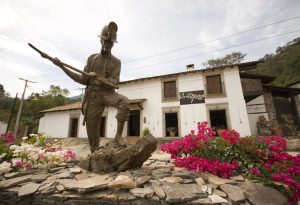 Did you know that 75% of the word’s organic coffee comes from Latin America and of that 75%, Mexico is the leading producer of coffee beans grown without any pesticides, herbicides, fungicides, or other harmful chemicals? Instead of pesticides and harmful chemicals, the $400+ million dollars worth of coffee beans exported from Mexico each year is fertilized naturally by animal droppings and the insects that could damage the crop are regulated by local birds, bats, and lizards.
Did you know that 75% of the word’s organic coffee comes from Latin America and of that 75%, Mexico is the leading producer of coffee beans grown without any pesticides, herbicides, fungicides, or other harmful chemicals? Instead of pesticides and harmful chemicals, the $400+ million dollars worth of coffee beans exported from Mexico each year is fertilized naturally by animal droppings and the insects that could damage the crop are regulated by local birds, bats, and lizards.
Mexican coffee beans are grown predominantly in three regions: Chiapas and Oaxaca in the southern part of the country and Coatepec on the Gulf Coast. The varying topography of Mexico results in a significant difference in the altitude at which these coffee beans are grown, which affects the flavor of the coffees from each region.
Many think of the light, nutty, and acidic flavors found in coffee produced in the mountainous region of Coatepec when they think of Mexican coffee; however, beans grown in the lush jungles of Chiapas yield a bright, sweet flavor with a hint of clove and apricot. Beans grown in the costal area of Oaxaca result in a much heavier bodied coffee, often flavored with chocolate and almonds.
Most of the coffee grown in Mexico comes not from large plantations but from small, local farms of less than 25 acres instead. For coffee enthusiasts and those interested in organic farming and trade, visiting these local farms and speaking with farmers first hand is always a memorable experience. For more information about visiting local coffee farms in Mexico, contact Journey Mexico today!





